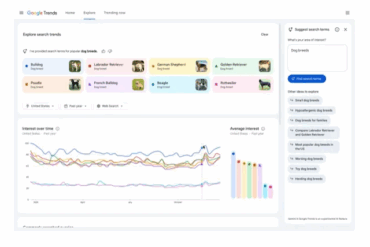By
Whether you’re working in-house or with an agency, when your teams understand their counterparts’ approaches, you can see better collaboration, redundancy and overall marketing performance. Here are some of the top lessons search folks can learn from social and vice versa.
What Search Talent Can Learn From Social
1. The impact of creative on performance
Well-written ad copy improves search ads, but its impact is often marginal. On social, creative is arguably the biggest determinant of success. Social ad messaging has to work harder to get someone to engage in that environment and also needs to be reconsidered much more routinely than search to be effective. When a search marketer feels like they’re out of ideas for ad messaging, it’s a virtual lock that their social ad friends can help.
This has changed a ton recently, but search marketers are historically skeptical of automation. Smart money was on bidding manually (after years of missteps with Google auto-bidding) and traditional A/B testing for ads. Social platforms have almost always seen automated bidding outperform manual bids. Paid social managers know to be patient with automation, how to feed it the right amount of data and how to talk through the learning phase to stakeholders.
Granularity is so important with search. Blue shoes and red shoes merit complete separation so that you can match ads and destinations. That doesn’t exist on social. Social ad managers are often targeting audience profiles and not keywords, so they don’t know whether the person is going to want blue or red shoes. As search moves more toward audience-based targeting, search managers would be wise to learn from their social ad colleagues how to best appeal to an audience through aspirational creative.
4. Attribution discrepancies
Facebook tracks users across browsers and devices more effectively than Google or Microsoft Advertising, but many tracking platforms will favor search, simply because it tends to drive more “last-click” leads and sales. Social ad campaigns deliver more value from ad views, after which users are much more likely to visit in a new tab, on a later web session or on another device.
Search is about instant gratification — the user clicks, and they either convert or they do not. That typically leaves search marketers less equipped than social marketers in understanding and explaining attribution differences and why, just because there isn’t a purchase or conversion right off of an ad click, that doesn’t mean it’s ineffective.
What Social Talent Can Learn From Search
1. With setting bids, there’s more than meets the eye
So much of search has to do with setting bids and adjusting them over time. Search marketers are always revisiting bids and searching for new opportunities to find new pockets of opportunity to bid differently. Social marketers tend to take an “if it ain’t broke, don’t fix it” approach. Social marketers should test out bid values and methods more frequently to determine where an ad is showing, how often it’s showing and what results it’s driving.
2. The possibilities available in limited options
Search has so many different ways in which you can improve (or screw up) performance. Control drives managers toward many thousands of segments in a developed search account, each with its own frequent adjustments. Because social advertising has fewer levers, that sometimes leads to fewer attempts to change them. Armed with the basics of social advertising, it’s amazing what opportunities a search manager might uncover when let loose on social strategy.
3. Launching the ads is just the beginning
Preparation and launch are key to social ad results. Choosing the correct campaign objective, researching audience segments, building the right creative and picking the right bid strategy are all essential. And once one launch is complete, often it’s right into prepping the next. If it has a tough first week, it’s harder to come back.
With paid search, the launch is the tip of the iceberg. The first week is really a lump of clay that will be molded over time with optimizations. Taking a moment to see if you can get more of the best performance from successful social launch, or to examine what is salvageable from a failed launch, can deliver huge results in the present and learnings for the future.
4. Performance needs to put up or shut up
When paid search is called a performance marketing channel, it really means a performance marketing channel. If the return on ad spend or lead cost doesn’t justify the budget, that budget will get cut. So, search managers have a very high sense of urgency about performance, and it drives what they communicate about and choose to optimize.
Because social ad managers are often operating at arm’s length from that type of scrutiny when promoting a new product line, creating awareness — or starting a conversation — and building a (healthy) urgency around proving return would serve them well.
Too often, our marketing teams can become siloed and territorial, which has an impact on everything from camaraderie to marketing performance. Taking time to integrate each team’s perspectives can not only unlock better performance and team communication, but also create a better workplace for your team and better marketing for your brand.
Feature Image Credit: GETTY





